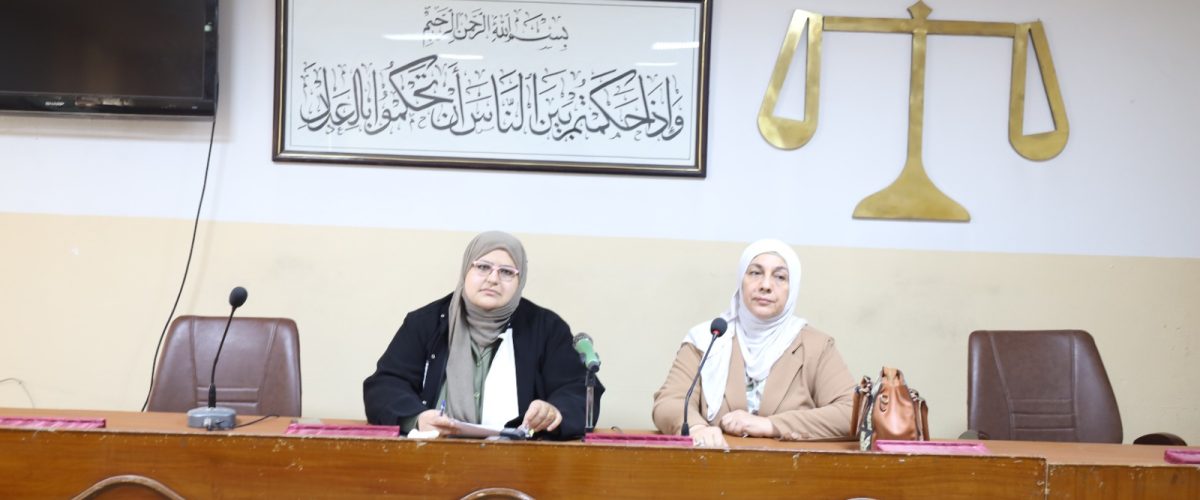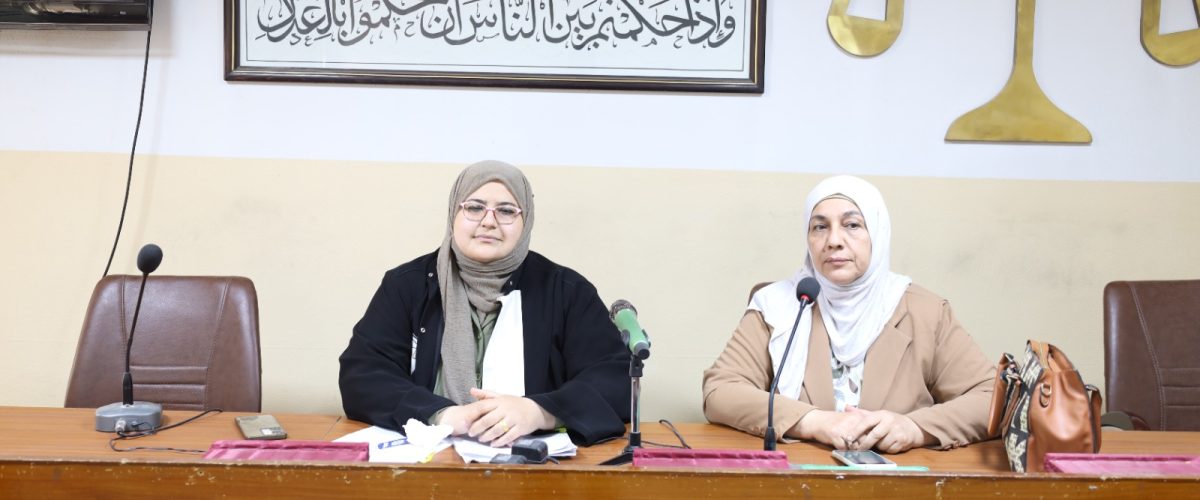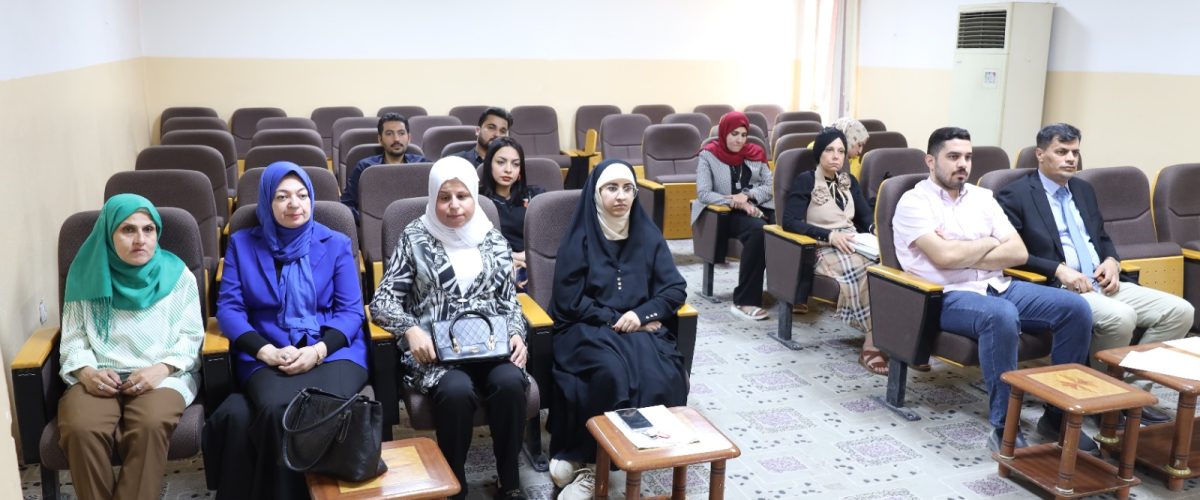The women’s Affairs Unit at the college of Law, University of Baghdad, held a seminar entitled “Protecting Women in international and non-international conflicts” the session was chaired by the lecturer in the Public Law.Dr. Rabab Khalil Ibrahim and presented by the lecturer at the Public Law (Asst.lect. Sura Adib), and that on Tuesday, 23/4/2024 in the model courtroom at the college.
The seminar aims to explain the role of international humanitarian law in the protection of women in general, therefore, the application of these rules and what applies to women in the occupied territories because they are an integral part of the women of the world, we will show the protection of women in the conventions of international humanitarian law, also explain protection from the effects of hostile acts, the protection of detainees and their protection from the death penalty and how to treat prisoners, and finally we will show the status of Palestinian women and the issue of their protection.
The seminar included several topics, the most important of which are the distinction between international and non-international armed conflicts, the protection of women from the effects of hostile acts in accordance with the conventions of international humanitarian law, the four Geneva Conventions for the year 1949 and the First Additional Protocol in 1977, the role of the United Nations in protecting women’s rights, the status of Palestinian women and the issue of their protection.
The seminar came up with several recommendations, including an immediate cease-fire and an end to the genocide to which the Palestinian people are exposed in general and the racist extermination of women in particular, the presence of indiscriminate attacks and the use of internationally prohibited weapons, reducing the violations to which women are subjected as a result of indiscriminate shelling of unjustified harm and pain, in addition to obliging the forces of the Zionist entity in accordance with the conventions of international humanitarian law and adherence to the general principles of international humanitarian law, as well as what is stated in the Universal Declaration of human rights not to deprive women in emergency situations and armed conflicts of food and medical aid.



